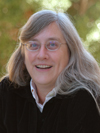Related Research Articles
Bioethics is both a field of study and professional practice,interested in ethical issues related to health,including those emerging from advances in biology,medicine,and technologies. It proposes the discussion about moral discernment in society and it is often related to medical policy and practice,but also to broader questions as environment,well-being and public health. Bioethics is concerned with the ethical questions that arise in the relationships among life sciences,biotechnology,medicine,politics,law,theology and philosophy. It includes the study of values relating to primary care,other branches of medicine,ethical education in science,animal,and environmental ethics,and public health.

Arthur L. Caplan is an American ethicist and professor of bioethics at New York University Grossman School of Medicine.
Gregory Stock is an American biophysicist,best-selling author,biotech entrepreneur,and the former director of the Program on Medicine,Technology and Society at UCLA’s School of Medicine. His interests lie in the scientific and evolutionary as well as ethical,social and political implications of today's revolutions in the life sciences and in information technology and computers.

The Hastings Center is an independent,nonpartisan bioethics research institute in Garrison,New York.

Julian Savulescu is an Australian philosopher and bioethicist. He is Chen Su Lan Centennial Professor in Medical Ethics and Director of the Centre for Biomedical Ethics at the Yong Loo Lin School of Medicine,National University of Singapore. He is also the Uehiro Chair in Practical Ethics at the University of Oxford,and was previously the Fellow of St Cross College,Oxford,Director of the Oxford Uehiro Centre for Practical Ethics,and co-director of the Wellcome Centre for Ethics and Humanities. He is a visiting professorial fellow in Biomedical Ethics at the Murdoch Children's Research Institute in Australia,and distinguished visiting professor in Law at Melbourne University since 2017. He directs the Biomedical Ethics Research Group and is a member of the Centre for Ethics of Pediatric Genomics in Australia. He is a former editor and current board member of the Journal of Medical Ethics,which is ranked as the No.2 journal in bioethics worldwide by Google Scholar Metrics,as of 2022. In addition to his background in applied ethics and philosophy,he also has a background in medicine and neuroscience and completed his MBBS (Hons) and BMedSc at Monash University,graduating top of his class with 18 of 19 final year prizes in Medicine. He edits the Oxford University Press book series,the Uehiro Series in Practical Ethics.
Ruth R. Faden is an American scientist,academic,and founder of the Johns Hopkins Berman Institute of Bioethics. She was the Berman Institute's Director from 1995 until 2016,and the inaugural Andreas C. Dracopoulos Director from 2014 to 2016. Faden is the inaugural Philip Franklin Wagley Professor of Biomedical Ethics.

The American Journal of Bioethics is a monthly peer-reviewed academic journal published by Taylor &Francis,covering all aspects of bioethics. It publishes target articles,open peer commentaries,editorials,book reviews,and case studies and commentaries in clinical care and research ethics. The journal also publishes special issues that address timely ethical challenges. The editor-in-chief is David Magnus,who was also one of the journals founders.

Daniel Isaac Wikler is an American public health educator,philosopher,and medical ethicist. He is currently the Mary B. Saltonstall Professor of Population Ethics and Professor of Ethics and Population Health in the Department of Global Health and Population of the Harvard T.H. Chan School of Public Health in Boston. He is Director and a core faculty member in the Harvard Program in Ethics and Health (PEH). His current research interests are ethical issues in population and international health,including the allocation of health resources,health research involving human subjects,organ transplant ethics,and ethical dilemmas arising in public health practice,and he teaches several courses each year. He is a fellow of the Hastings Center,an independent bioethics research institution.
Jonathan D. Moreno is an American philosopher and historian who specializes in the intersection of bioethics,culture,science,and national security,and has published seminal works on the history,sociology and politics of biology and medicine. He is an elected member of the National Academy of Medicine.

The National Core for Neuroethics at the University of British Columbia was established in August 2007,with support from the Canadian Institutes of Health Research,the Institute of Mental Health and Addiction,the Canada Foundation for Innovation,the British Columbia Knowledge Development Fund,the Canada Research Chairs program,the UBC Brain Research Centre and the UBC Institute of Mental Health. Co-founded by Judy Illes and Peter Reiner,the Core studies neuroethics,with particular focus on ethics in neurodegenerative disease and regenerative medicine,international and cross-cultural challenges in brain research,neuroimaging and ethics,the neuroethics of enhancement,and personalized medicine.
Hans Robert Schöler is a molecular biologist and stem cell researcher. He is director at the Max Planck Institute for Molecular Biomedicine in Münster.

Daniel John Callahan was an American philosopher who played a leading role in developing the field of biomedical ethics as co-founder of The Hastings Center,the world's first bioethics research institute. He served as the Director of The Hastings Center from 1969 to 1983,president from 1984 to 1996,and president emeritus from 1996 to 2019. He was the author or editor of 47 books.

Insoo Hyun is the Director of Research Ethics and a faculty member of the Center for Bioethics and senior lecturer on Global Health and Social Medicine at Harvard Medical School. He also serves as the Inaugural Director of the Center for Life Sciences and Public Learning at Boston's Museum of Science. As a Fulbright Scholar and Hastings Center Fellow,Dr. Hyun's interests include ethical and policy issues in stem cell research and new biotechnologies.

Christoph Rehmann-Sutter is a philosopher and bioethicist. He is holding a professorship for theory and ethics in biosciences at the Institute for History of Medicine and Science Studies at the University of Lübeck in Germany.

Jane Maienschein is an American professor and director of the Center for Biology and Society at Arizona State University.
Daniel Sulmasy is an American medical ethicist and former Franciscan friar. He has been Acting Director of the Kennedy Institute of Ethics and on the faculty of the Pellegrino Center for Clinical Bioetics. He is the inaugural Andre Hellegers Professor of Biomedical Ethics,with co-appointments in the Departments of Philosophy and Medicine at Georgetown.

Françoise Elvina BaylisFISC is a Canadian bioethicist whose work is at the intersection of applied ethics,health policy,and practice. The focus of her research is on issues of women's health and assisted reproductive technologies,but her research and publication record also extend to such topics as research involving humans,gene editing,novel genetic technologies,public health,the role of bioethics consultants,and neuroethics. Baylis' interest in the impact of bioethics on health and public policy as well as her commitment to citizen engagement]and participatory democracy sees her engage with print,radio,television,and other online publications.

Christine I. Mitchell is an American filmmaker and bioethicist and until her retirement in September 2022,the executive director of the Center for Bioethics at Harvard Medical School (HMS).
Eric M. Meslin PhD is a Canadian-American philosopher-bioethicist and is the past President and CEO of the Council of Canadian Academies (CCA).
References
- ↑ "David Magnus, Ph.D." Stanford Medicine Profiles. Retrieved 2016-11-04.
- ↑ Guthmann, Edward (2016-05-31). "Stanford go-getter has become go-to guy for those facing quandaries over new medical technologies" . Retrieved 2016-11-08– via SF Chronicle.
- ↑ "David Magnus | Public Policy Program". publicpolicy.stanford.edu. Retrieved 2016-11-30.
- ↑ "David Magnus". Stanford University. Retrieved 2016-11-29.
- ↑ "Editorial Board". Homepage. The American Journal of Bioethics. Retrieved 2016-11-04.
- ↑ "Officers". Homepage. Association of Bioethics Program Directors. Retrieved 2016-11-04.
- ↑ "David Magnus - Distinguished Speakers Series". honors.nova.edu. Retrieved 2016-11-30.
- ↑ Magnus, D; Caplan, A; McGee, G, eds. (2002). Who Owns Life?. New York: Prometheus Books. ISBN 9781573929868.
- ↑ "Brain Death Really Is Death". Time . Retrieved 2016-11-30.
- ↑ "Researchers customize stem-cell lines". The Today Show . NBC News. Retrieved 2016-11-04.
- ↑ Dembosky, April (2015-05-21). "Coded Talk About Assisted Suicide Can Leave Families Confused". All Things Considered . NPR. Retrieved 2016-11-04.